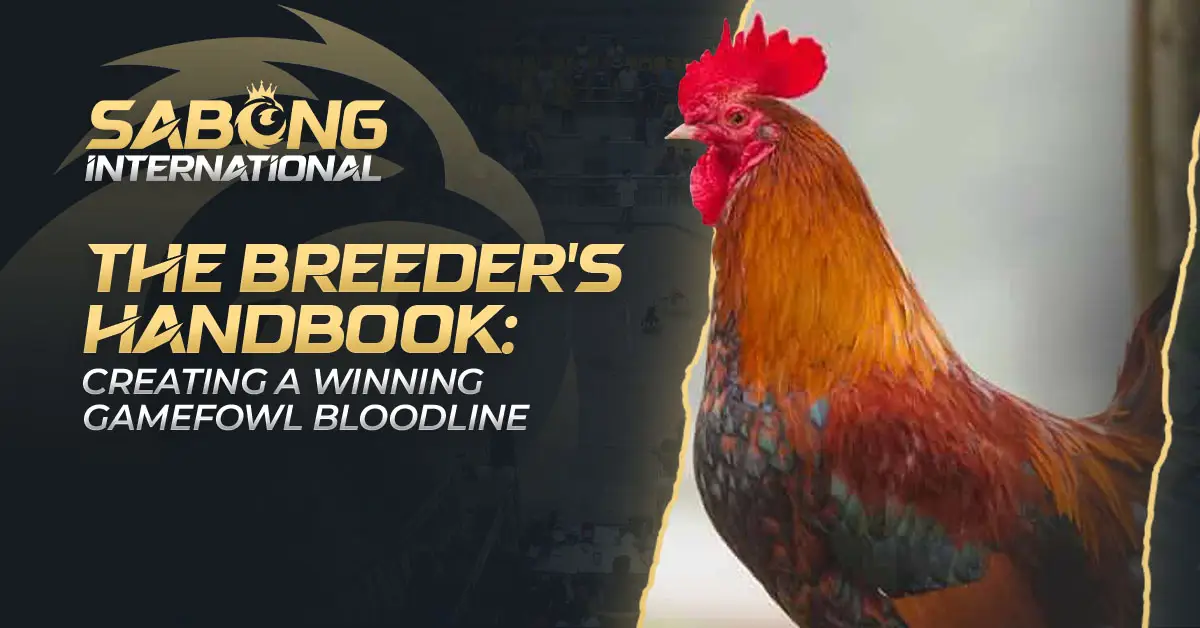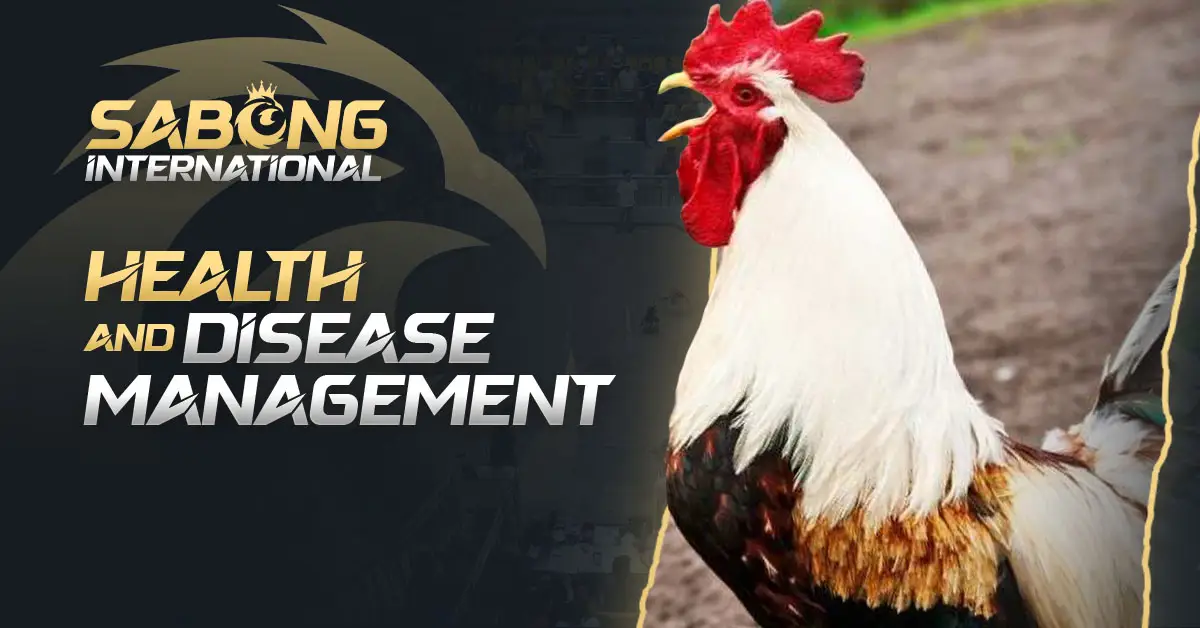The Breeder's Handbook: Creating a Winning Gamefowl Bloodline

Key Takeaways
| Key Aspect | Description |
|---|---|
| Genetics | Understanding the basics of gamefowl genetics is crucial for breeding. |
| History | Knowledge of traditional bloodlines helps in making informed breeding decisions. |
| Selection | Choosing the right foundation stock is the first step to success. |
| Breeding Strategies | Employing the right breeding strategy is key to developing a strong bloodline. |
| Nutrition & Care | Optimal breeding requires a focus on nutrition and comprehensive care. |
| Training & Conditioning | Preparing birds for competition is essential for a winning edge. |
| Health Management | Maintaining the health of your flock prevents losses and ensures quality. |
| Record Keeping | Detailed records are invaluable for tracking and improving bloodlines. |
| Marketing | Effective marketing strategies are necessary to promote your bloodline. |
| Ethics | Ethical breeding practices ensure the welfare of the gamefowl and the sport's integrity. |
Introduction
Breeding gamefowl is a practice steeped in history and passion. It’s a meticulous craft that demands more than just a passing interest—it requires an in-depth understanding of genetics, a commitment to excellence, and a profound respect for the birds. The goal of this handbook is to provide you with the foundational knowledge to create a bloodline not just capable of winning, but one that is revered in the competitive arena of gamefowl breeding.
Understanding Gamefowl Genetics
The Genetic Blueprint
Genetics are the cornerstone of breeding. They are the invisible threads that weave together the tapestry of a gamefowl’s potential. To master breeding, one must first understand the basics of heredity, dominant and recessive traits, and how these can be manipulated to enhance or diminish certain characteristics.
- Dominant Traits: Traits that are more likely to be expressed in offspring.
- Recessive Traits: Traits that are less likely to appear unless paired with another recessive gene.
Genetic Diversity and Vigor
The History of Gamefowl Bloodlines
The Legacy of Champions
The history of gamefowl bloodlines is rich with stories of legendary birds whose names are still spoken with reverence. Understanding the lineage of these champions provides insight into the traits that have been valued and cultivated over generations.
- Historical Bloodlines: A table of famous bloodlines and their key characteristics.
| Bloodline | Traits |
|---|---|
| Hatch | Power and aggression |
| Kelso | Speed and cunning |
| Roundhead | Endurance and agility |
Modern Innovations
Selecting Your Foundation Stock

The Cornerstone of Your Bloodline
The selection of your foundation stock is perhaps the most critical decision you will make. These birds set the stage for the traits that will define your bloodline for generations to come.
- Criteria for Selection: Health, temperament, physical attributes, and performance history.
The Breeder's Eye
Developing an eye for potential is a skill honed through experience. It’s about seeing beyond the feathers to the genetic potential that lies beneath.
- Observation Points: Conformation, vigor, and instinctual behaviors.
Breeding Strategies for Gamefow
The Science of Success
Breeding strategies are the methods by which you can guide the genetic destiny of your bloodline. Each approach has its own set of principles and desired outcomes.
- Line Breeding: Concentrates the genes of a particular ancestor.
- Inbreeding: Increases the chances of recessive traits appearing.
- Crossbreeding: Introduces new traits and increases vigor.
Case Studies
Learning from the successes and failures of past breeders can save you from repeating the same mistakes.
- Success Stories: Anecdotes of breeding strategies that have led to the creation of champion bloodlines.
Nutrition and Care for Optimal Breeding
The Fuel for Greatness
Nutrition is not just about sustenance; it’s about providing the building blocks for growth, health, and vitality.
- Nutritional Requirements: Proteins, vitamins, minerals, and other essential nutrients.
A Healthy Flock
The care you provide your gamefowl is just as important as their genetic makeup. A healthy bird is a strong competitor.
- Best Practices: Housing, daily care routines, and preventative health measures.
Training and Conditioning
Preparing for the Ring
Training and conditioning are what turn a bird with potential into a true competitor. This is where the breeder’s knowledge and the bird’s genetics come together in a display of prowess and stamina.
- Training Techniques: Methods to enhance strength, agility, and reflexes.
- Conditioning Schedule: A timeline for preparing birds for competition.
The Edge of Excellence
The difference between a good gamefowl and a great one often lies in the details of its training regimen.
- Daily Routines: Exercise, sparring, and rest periods tailored to each bird’s needs.
Health and Disease Management

A Stitch in Time
Preventative health care is the key to avoiding the heartache of disease and the loss of valuable birds. Regular health checks and vaccinations can save breeders from future troubles.
- Common Health Issues: Identification and prevention strategies.
- Vaccination Protocols: Keeping your flock immune to common diseases.
When Illness Strikes
Despite all precautions, illness can still occur. Knowing how to recognize and treat common ailments can be the difference between life and death.
- Treatment Plans: First aid and when to call a veterinarian.
Record Keeping and Pedigree Tracking
The Breeder's Log
Good record-keeping is an essential part of breeding. It allows you to track the performance of your birds, understand the outcomes of different breeding strategies, and make informed decisions for future pairings.
- Record Essentials: What to track and how to organize your data.
The Power of Pedigree
Understanding the lineage of your birds helps in maintaining genetic diversity and planning for future breedings.
- Pedigree Software: Tools to help track the genealogy and traits of your birds.
Marketing Your Gamefowl Bloodline
Building Your Brand
In the competitive world of gamefowl breeding, your reputation is everything. Marketing your bloodline effectively can establish your name in the community and ensure the success of your breeding business.
- Marketing Strategies: Online presence, networking, and showcasing your champions.
The Marketplace
Knowing where and how to sell your birds is crucial. Whether through auctions, private sales, or shows, each avenue has its own set of considerations.
- Sales Channels: Pros and cons of different sales methods.
Ethical Breeding Practices
The Moral Compass
Ethical breeding is about more than just following the law; it’s about respecting the birds and the sport. It involves making decisions that prioritize the health and well-being of your gamefowl.
- Ethical Considerations: Humane treatment, responsible breeding, and the welfare of the birds.
Balancing Act
Finding the balance between the competitive nature of the sport and the ethics of animal care is a challenge that all breeders must navigate.
- Case Studies: Examples of ethical dilemmas and how they were resolved.


